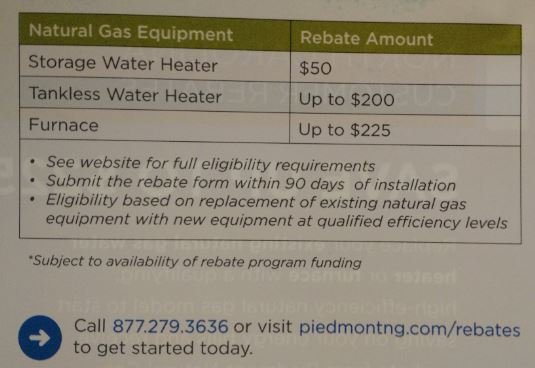RAE
Thinks s/he gets paid by the post
Hmm, I've wondered about my 15yr old water heater, may be I should pre-preemptively replace it. I'm just worried that generally the old stuff was built better and the new one I get will probably only last half as long. In a 'don't try to fix what ain't broken' kind of way.
Same here. Ours is about 16 years old now, and still looks okay (to me), and works fine. It is in the (unfinished) basement also, not far from the drain. I am inclined to just go with it until a problem develops, unless I can be convinced that there is a compelling reason to replace it sooner.


 Ok, time to read the instructions and on line info.
Ok, time to read the instructions and on line info.
 ). the water expands as it's heated. With a check valve and the faucets closed, there is no where for this almost totally incompressible liquid to go. So the pressure rises and strains the tank and plumbing.
). the water expands as it's heated. With a check valve and the faucets closed, there is no where for this almost totally incompressible liquid to go. So the pressure rises and strains the tank and plumbing.